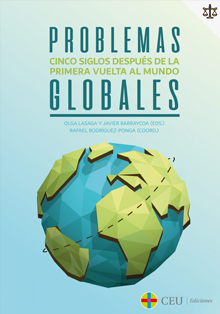Leopoldo López Gil
MP of the European People’s Party
For the spurious regime of Nicolás Maduro, 2022 has begun with an unexpected electoral result overwhelmingly favourable to the candidate of the opposition unity in the regional elections for the governorship of the State of Barinas, an entity located in the central-western plains of Venezuela that since colonial times has been very suitable terrain for extensive cattle farming, an activity that has given rise to significant fortunes that due to its possibilities enabled educating people whose lustre allowed them to participate prominently in politics both nationally and internationally. Such roles were played in the debates and signing of the Act of Independence of Venezuela or in the Constitution of Cadiz in Spain.
One of their sons, not necessarily as enlightened as his predecessors, Hugo Chávez Frías, distinguished himself by becoming the ringleader of the first military attempt in 1992 against the constitutional government of President Carlos Andrés Pérez. Lieutenant Colonel Chávez managed to triumph in the last democratic, transparent and verifiable presidential elections ever held in that country, and since then Barinas and its institutions have become the family’s preserve. The father was appointed governor and then, as if by hereditary right, his sons chained the succession until 9 January last.
Twenty years that have turned a humble family of a public school teacher into a very powerful entity owning estates and companies whose origin has never been understood by orthodox canons.
Could we think that this entity, like Orwell’s farm, has risen to the level of popular disappointment at the pigs’ betrayal of their revolution?
Certainly many were sceptical about the possibility of a recognisable process with a triumph, after the blatant disregard of the previous result on 21 November 2021 when they were surprised by the triumph of the opposition candidate, Freddy Superlano, who won by a narrow margin over the younger Chávez brother. The regime’s immediate reaction was to disavow not only the winner, accused of being politically disqualified, but also the authority of the National Electoral Council (CNE) and, on the instructions of the Supreme Court of Justice (TSJ), to declare the contest null and void and order a new election for 9 January.
Maduro and his advisors found themselves without another Chávez and turned to an upstart whose political kinship as the lieutenant colonel’s son-in-law was intended to legitimise him in the eyes of an angry people, but who were aware of the power and control of that family in the state. Something difficult to achieve was the unbreakable union of all the legitimate opposition parties around one cause: to win the elections against the regime. This is how Sergio Garrido was selected, after several attempts that were disqualified or disqualified by the CNE. Finally, in united harmony, a resounding victory was achieved with more than 55% of the votes counted, turning the regional event into a torch that has shown Venezuelans that it is feasible to leave tyranny by the peaceful route, but also that this will only be achieved through the union and joint action of the entire opposition.
This triumph in the face of a disgraceful advantage taking, an abusive use of public resources and a mobilisation of both military and civilian personnel on an opprobrious scale, has generated many reactions and lessons. It has made it clear that neither defeatism, nor abstentionism, nor divisionism are appropriate ways to return to the democratic path; that we must begin prudently and firmly to build a new way of doing politics, working without messianism or populism, uniting all efforts of support behind the interim government and unmasking the usurpers; and that we must correct past mistakes that today show betrayals, clumsiness and defeats caused by personal agendas.
Barinas can and must be examined with prudence. We have seen how after two decades the people of Barinas, like the characters in Orwell’s Animal Farm, have verified that of all the promises and norms of the revolution of Socialism of the 20th Century, all that remains, as in the erased laws of the farm, is that for the socialist managers “ALL ANIMALS ARE EQUAL, BUT SOME ANIMALS ARE MORE EQUAL THAN OTHERS”. And this deception is unacceptable, because we run the risk of ending up as in the English satire: confused and subdued by the pigs.
© FAES / All rights reserved






